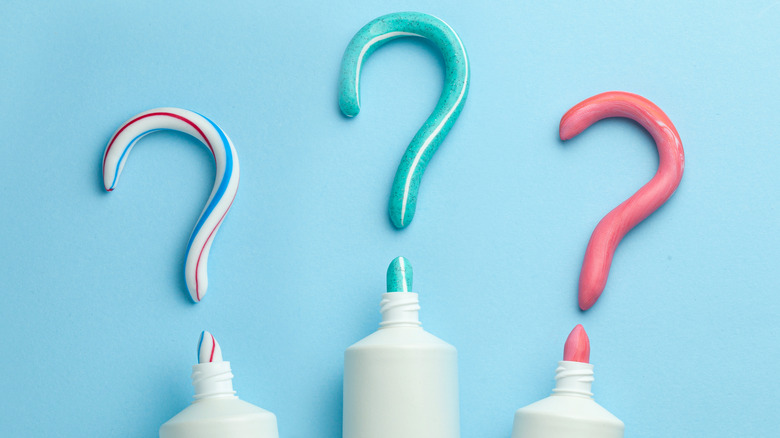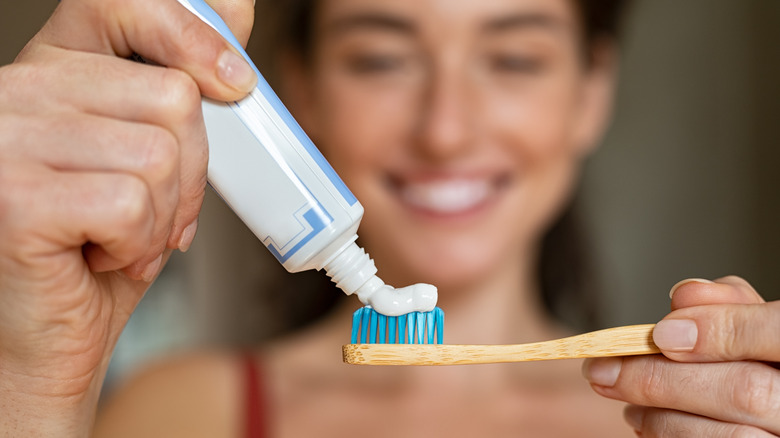This Is What Happens When You Use Too Much Toothpaste
Brushing your teeth is essential to maintaining dental health, which is more important to your overall health than you may think. Not only does brushing your teeth reduce plaque, tartar, and cavities, but it also reduces your risk of gum disease and oral cancer (per Healthline). According to the Centers for Disease Control and Prevention (CDC), nearly half of American adults over the age of 30 have gum disease.
You will commonly hear that many people are not brushing their teeth enough, and that is true. Although the American Dental Association (ADA) advises brushing your teeth twice per day, more than half of children and one-third of adults fail to meet this recommendation (per DentistryIQ).
But while brushing your teeth too minimally will definitely put your health at risk, that does not mean that it is healthy to go overboard, either. Unfortunately, this is also a problem for many Americans; according to the CDC, roughly 40% of children between the ages of 3 and 6 use too much toothpaste. In fact, roughly 60% of children between the ages of 3 and 15 use a half-load or full-load when brushing their teeth.
This is why you shouldn't use too much toothpaste
Experts agree that people above the age of 3 should use a pea-sized dab of toothpaste (per Harris Dental), but this ideal is met by less than half of children. Many children use more toothpaste than necessary, as do many adults who believe that using a lot of toothpaste will help whiten their teeth. However, doing so may actually have the opposite effect. Experts at Nora Family Dentistry state that "scrubbing away the enamel is actually making the dentine level of the tooth closer to the surface which results in a darker overall appearance."
Nora Family Dentistry also notes that using too much toothpaste can lead to canker sores, especially if your toothpaste includes sodium lauryl sulfate.
According to the CDC, it is particularly dangerous for children below the age of 6 to use too much toothpaste because they may inadvertently swallow large amounts of it. This consumption of fluoride may damage children's enamel and lead to discoloration of their teeth.


